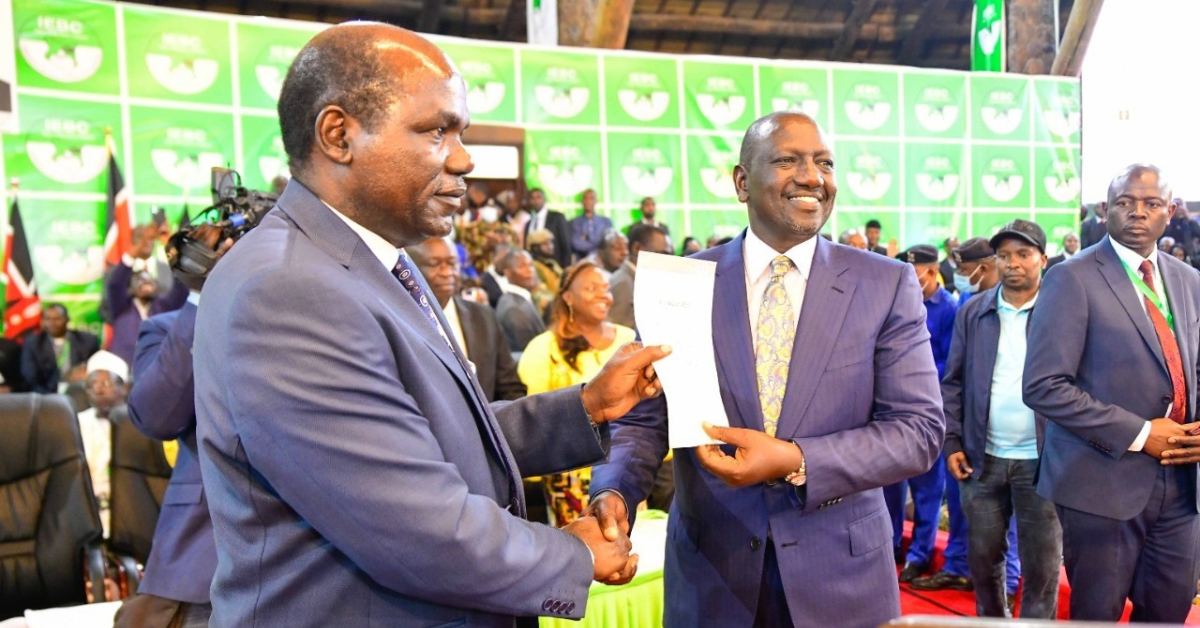Are we on the march to madness in March? Will there be chaos and violence during March 4th and soon after the result is announced?
After the chaos of the political primaries, these questions have taken on new urgency. Your life – indeed the life of the nation – may depend on the answers.
But to answer these questions we need further calibration. The answers, of course, are yes to both. Yes, we are (and have always been) on the march to madness. And yes, there will be violence during and after the elections. It is only a question of magnitude. The question therefore should be: will the madness and violence in March be of such magnitude as to render the election result – and I refer here to outcome of the presidential contest – invalid? This is the BIG question. Framed this way, no one dares answer yes to this question. There is too much at stake.
But we must attempt an answer. The recent party elections (it was demo-crazy in full display) provide a useful pointer and allow us to dissect motives, means and methods.
There was what we may call the strategy motive: if the party bosses felt a particular candidate stood a better chance at winning the main contest, they blatantly ignored whoever was elected by the party’s rank-and-file. Case in point: Bishop Wanjiru and Elizabeth Ongoro. In the cold calculus of means and methods and ethnic math, Wanjiru was deemed to stand a better chance of giving Mr. Mike Mbuvi ‘Sonko’ a real competition. She had proved herself (twice) in the rough politics of Starehe. Her direct nomination had little to do with Mr Bett’s explanation, namely, avoiding two Luo candidates contesting for top positions in a cosmopolitan city.
We also saw candidates that were genuinely popular on the ground, who won clearly and in broad daylight, but whose rivals were mysteriously declared the winners. Cases in point: Jakoyo Midiwo versus Elisha Odhiambo and Oburu Odinga versus William Oduol. In both cases, the incumbents were reported to have lost decisively yet the party bosses in Nairobi were determined to give them nomination certificates. Here, nepotism appears to have been the motive (the relatives of the party boss had to obtain the nomination certificates by any means possible). The method was blatant result-reversal (reminiscent of the infamous Kanu days), and the means the speed of announcement and issuance of nomination certificates.
Finally, in Mary Wambui’s ordeal in Othaya, we saw what appeared to be the hatred (some say ‘family’ rivalry) motive gone amok. The means and method of executing the motive (which as we now know, failed) were intimidation and force. The government officials on the ground were intimated and ordered to do everything in their power to stop the lady, or else…
When the overriding motive is acquisition of power at any cost, all manner of means and methods will be deployed to achieve the desired result. And this is what is extremely dangerous. Prophets of doom see the worst case scenario unfolding: county administration officials, including the security services, being compromised, leading to deliberate chaos at some polling stations, ballot boxes being stolen or tampered with, the wrong winners announced and violence breaking out on a massive scale.
I do not expect these to happen.
True, there will be chaos and violence – invariably. It might even happen in many polling stations. And true, IEBC will not get everything right. And yes, some county administration officials will be compromised. But all these will not be of such a magnitude as to cause massive violence and outright rejection of the results. There are three main reasons why these will not come to pass. First, not everyone in the government system will be bent on subverting the process or tilting the result in one way or the other. Many will perform their duties as required by law.
The second reason I do not expect massive violence is the obvious one: The Kalenjin and Kikuyu – traditional rivals – are largely on the same side of the contest this time round. Any violence that might happen after the election would be related to the degree to which TNA will keep the promises they have made to URP.
The final reason is in form of a memo. Dear election observers: Ours is a young democracy. Many Kenyans understand that this election – the first election under the new constitution – will be hugely complex. Some degree of messiness is expected and will be tolerated. Mistakes will be made and lessons learned. It would be foolish to judge Kenya during this transition by the yardstick of mature democracies.
So, are we on the march to madness in March? Yes, but breath easy; all will be well.

